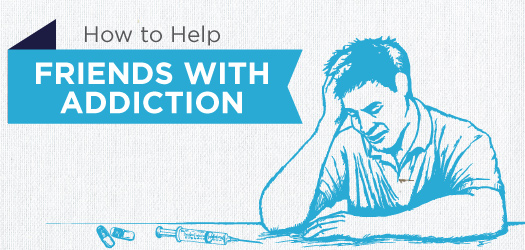Article contributed by Jacquelyn Ekern, MS, LPC

It has been said that most people can count on one hand the number of true friends they have. Friendship is one of the joys of life. The expression of concern by a trusted friend can be pivotal to the addict, when handled with sensitivity and insight.
Confronting a Friend or Loved One About Their Addiction
If we have a friend or loved one that we see destroying themselves and their lives, we will naturally feel upset, worried and concerned. Yet, we may also fear damaging or losing that friendship if we confront our friend about their addiction.
Sometimes a friend’s struggle with addiction to alcohol or drugs has escalated to such a degree that we fear for their lives. We may feel obligated to risk losing the friendship in order to help our friend turn their life around.
In the end, we hope it does not come down to losing a friendship, but it will be worth the risk to help someone be restored to a healthy and meaningful life. This life may have otherwise continued to suffer, or even die, from alcoholism or addiction.
Developing a Plan for Helping Your Loved One
Once the decision has been made to discuss the addictive behaviors you have observed with your friend, you will need a plan.
- Choose a quiet place, without distractions, to address your concerns candidly.
- Pick a time that where your loved one would feel the most secure and comfortable.
- Maintain a respectful and compassionate attitude in the discussion.
Possible Approaches When Talking to Your Loved One
A possible approach could be, “I feel concerned about you because I see you getting intoxicated, often, to such an extent that you are falling down, passing out and acting in ways that you would not normally behave if you were sober, and I am fearful about your health. You are important to me, I care about you and would like to help you. Will you talk to me about what is going on with you? Would you allow me to help you find treatment?”
Dealing with Your Loved Ones Reaction
Your friend may react with relief, surprise, anger or a host of other emotions. It is important to not personalize their reaction if it is negative. Sometimes an alcoholic or addict will be angry if they are not yet ready to face their addiction. This reaction is not about you but them and where they are in their addiction.
However, your friend may instead react with appreciation for your concern and a willingness to discuss what is going on for them and how they feel about their addictive behavior. This will then open the door for you to offer assist in researching and obtaining the level of care needed to help your friend address their addiction and recover.
Last Updated & Reviewed By: Jacquelyn Ekern, MS, LPC on June 5th, 2014
Published on AddictionHope.com, Drug Addictions Directory
